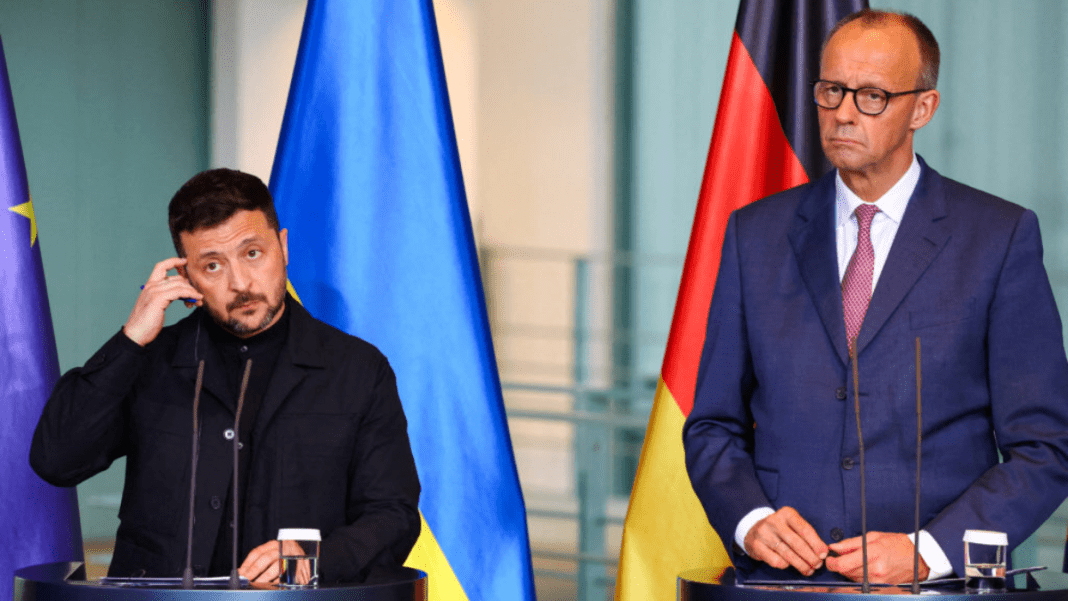Germany is currently exploring ways to support Ukraine in developing and potentially producing long-range missiles within its own borders. The discussions come as Kyiv seeks to strengthen its defense capabilities amid ongoing tensions in the region. German officials emphasized that the focus is on providing practical support while keeping exact details confidential. This approach leaves some uncertainty for outside observers, ensuring that adversaries are unsure about the extent and timing of military aid.
Talks on Long-Range Missiles Production and Military Support
During a joint press conference in Berlin, German officials revealed that Ukraine and its international partners are actively discussing the possibility of producing long-range missiles inside Ukraine. Germany may play a key role in equipping Ukrainian forces with the necessary technology, infrastructure, and training to handle these advanced weapons.
In the past, Germany had declined to provide Ukraine with the long-range Taurus cruise missile. However, officials emphasized that while the Taurus decision remains unchanged, broader discussions on other long-range missiles are ongoing. “We have agreed not to publicly discuss all the details to maintain some ambiguity for the Russian side about the level of military support,” the statement said.
European partners commit to helping Ukraine equip its army with long-range missiles of appropriate capability. They may transfer technology, provide technical training, and build the local infrastructure required for production. Although officials did not provide specific timelines, they stressed that every step aims to gradually enhance Ukraine’s self-reliant defense abilities.
The discussions also underline the importance of collective planning. By supporting domestic missile production, Germany and its partners aim to ensure that Ukraine is not only receiving weapons but also learning to maintain and operate them independently. This strategy emphasizes sustainability and long-term readiness in a complex security environment.
Coordination Among International Partners on Long-Range Missiles
The Berlin talks included meetings with other European leaders, highlighting the importance of coordination in providing Ukraine with long-range missiles. Officials indicated that any decision regarding production or delivery will be carefully aligned with allies to maintain a unified approach.
Germany’s official statement also noted that the discussions covered broader issues, such as the use of Russian assets frozen in Europe. “The most we, as Europeans, can do is to reach an agreement on the use of Russian assets,” the statement said. This shows that military planning is closely linked with diplomatic efforts and financial strategies, all aimed at strengthening Ukraine’s position without escalating tensions unnecessarily.
📰 22,500 Turkish Citizens Flee Economic Ruin—Germany Becomes Their Lifeline
Even though long-range missile delivery remains a sensitive topic, German authorities reiterated that their position on supplying Taurus missiles has not changed. Support for Ukraine will continue within feasible limits, ensuring flexibility depending on the evolving situation on the ground.
Context and Implications
Germany’s approach remains careful but deliberate. By discussing potential domestic long-range missile production in Ukraine, Germany and its partners signal their commitment to helping Ukraine strengthen its defense while avoiding actions that could provoke direct confrontation. Maintaining some ambiguity is part of a broader strategy to keep adversaries uncertain about the scale and timing of military support.
In recent months, other European nations have also stepped up assistance for Ukraine. Spain, for example, announced a €615 million aid package, which includes funds for military equipment and infrastructure recovery. Germany’s discussions about long-range missiles complement these efforts, demonstrating a coordinated approach among Western allies.
Germany and France sign landmark ODIN’S EYE agreement — Europe steps into a new defense era
While details regarding production, delivery, and timelines for long-range missiles remain undisclosed, Germany’s involvement reflects a willingness to provide Ukraine with advanced defense capabilities. Officials noted that ongoing consultations among European countries aim to balance strong support for Ukraine with careful management of regional security risks.
Overall, Germany’s discussions highlight a multi-layered strategy combining military aid, diplomatic coordination, and technical support. The focus remains on practical measures to strengthen Ukraine’s defense with long-range missiles, while sensitive decisions are handled through careful consultation with allies.

